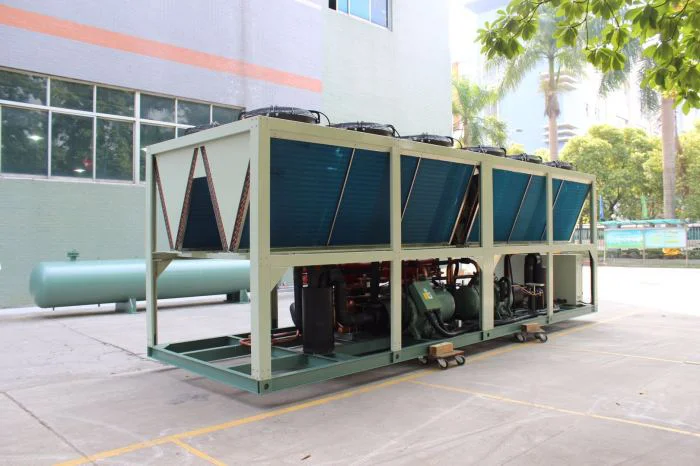Using Wastewater as a Heat Source – Heat Pump Units Can Save Your Money
Wastewater heat pumps are among the most promising heat pump technologies in the world. It is estimated that by 2020, the new residential heating demand in seven major northern provinces and cities in China will exceed 400 million square meters. The central heating area (non-clean energy) in northern China is 5.13 billion square meters, and 100 million square meters of residential buildings will be converted to clean energy annually. By 2020, there will be 500 million square meters of new construction and renovation, of which about 100 million square meters are suitable for wastewater source heat pumps.
How does a wastewater source heat unit provide heating?
The heating method is a traditional heat pump form, specifically heating by wastewater. How does wastewater heat pump heating differ from traditional city central heating? Wastewater heat pumps do not heat water directly; they only extract wastewater at 3°C to 5°C. The heat pump unit transfers heat through its energy converter to soften tap water and heat it to around 50°C, which is then circulated through floor heating pipes to residents. Therefore, the hot water entering homes is softened and heated tap water.
Urban wastewater discharged into underground networks has its own temperature. In winter, wastewater maintains a stable temperature of 13°C–18°C, making it an ideal heat source for heat pump systems. Wastewater passes through a special tube heat exchanger, transferring heat to clean water while the wastewater is returned to the main channel. The heat pump unit uses a refrigerant liquid to absorb and release heat, providing heating to the building. During the heat exchange process, except for temperature changes, no water resources are consumed, and water quality is not degraded.
Save 75% on operating costs
Extracting heat from wastewater not only reduces pollution but also saves energy. Wastewater heat pump heating consumes only a small amount of energy, saving coal, fuel oil, natural gas, and other boiler system resources, without combustion, avoiding air pollution. With a wastewater heat pump system, each ton of waste heat used is equivalent to the heat produced by burning 1 kg of standard coal. Calculations show that heating 1 ton of water from 15°C to 45°C requires 30,000 calories; burning coal requires 6.9 kg of standard coal, natural gas requires 4.2 m³ (≈5 kg standard coal), direct electricity requires 35 kWh (≈12.3 kg standard coal), whereas wastewater heat pumps only consume 8.7 kWh (≈3 kg standard coal). The new heat pump is 3/4 cheaper than direct electric heating. China produces 80 billion tons of wastewater annually. Using wastewater heat pump systems, 25% of city buildings could be heated while saving 75 million tons of standard coal energy per day.
Wastewater heat pumps extract heat directly from wastewater. Their advantages are clear: first, high energy efficiency; second, economic and environmental protection; third, stable, safe, and reliable operation; in addition, they can provide heating, cooling, and hot water production. Investment-wise, they are relatively economical.

H’Stars Wastewater Source Heat Pump (with cold/heat recovery) is a hot water unit developed for bathhouses, hot water pools, swimming pools, and other bathing facilities. It extracts heat from domestic wastewater, saving energy and protecting the environment. Energy savings can reach 50% compared to conventional heating, significantly reducing operating costs.

